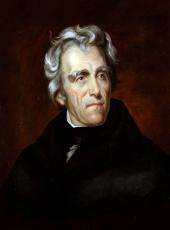To the Senate of the United States.
GENTLEMEN: The accompanying propositions, in the form of a treaty, have been recently sent to me by special messenger from the Choctaw Nation of Indians, and since it was received a protest against it has been forwarded. Both evince a desire to cede to the United States all their country east of the Mississippi, and both are here submitted. These measures are the voluntary acts of the Indians themselves. The Government was not represented in the councils which adopted them, nor had it any previous intimation that such steps were in contemplation. The Indians convened of their own accord, settled and executed the propositions contained in the treaty presented to me, and agreed to be bound by them if within three months they should receive the approbation of the President and Senate. The other measure is equally their own.
It is certainly desirous, on various and very pressing accounts, as will appear from the accompanying documents, that some agreement should be concluded with the Indians by which an object so important as their removal beyond the territorial limits of the States may be effected. In settling the terms of such an agreement I am disposed to exercise the utmost liberality, and to concur in any which are consistent with the Constitution and not incompatible with the interests of the United States and their duties to the Indians. I can not, however, regard the terms proposed by the Choctaws to be in all respects of this character; but desirous of concluding an arrangement upon such as are, I have drawn up the accompanying amendments, which I propose to offer to the Choctaws if they meet the approbation of the Senate. The conditions which they offer are such as, in my judgment, will be most likely to be acceptable to both parties and are liable to the fewest objections. Not being tenacious, though, on the subject, I will most cheerfully adopt any modifications which on a frank interchange of opinions my constitutional advisers may suggest and which I shall be satisfied are reconcilable with my official duties.
With these views, I ask the opinion of the Senate upon the following questions:
Will the Senate advise the conclusion of a treaty with the Choctaw Nation according to the terms which they propose? Or will the Senate advise the conclusion of a treaty with that tribe as modified by the alterations suggested by me? If not, what further alteration or modification will the Senate propose?
I am fully aware that in thus resorting to the early practice of the Government, by asking the previous advice of the Senate in the discharge of this portion of my duties, I am departing from a long and for many years an unbroken usage in similar cases. But being satisfied that this resort is consistent with the provisions of the Constitution, that it is strongly recommended in this instance by considerations of expediency, and that the reasons which have led to the observance of a different practice, though very cogent in negotiations with foreign nations, do not apply with equal force to those made with Indian tribes, I flatter myself that it will not meet the disapprobation of the Senate. Among the reasons for a previous expression of the views of the Senate the following are stated as most prominent:
1. The Indians have requested that their propositions should be submitted to the Senate.
2. The opinion of the Senate in relation to the terms to be proposed will have a salutary effect in a future negotiation, if one should be deemed proper.
3. The Choctaw is one of the most numerous and powerful tribes within our borders, and as the conclusion of a treaty with them may have a controlling effect upon other tribes it is important that its terms should be well considered. Those now proposed by the Choctaws, though objectionable, it is believed are susceptible of modifications which will leave them conformable to the humane and liberal policy which the Government desires to observe toward the Indian tribes, and be at the same time acceptable to them. To be possessed of the views of the Senate on this important and delicate branch of our future negotiations would enable the President to act much more effectively in the exercise of his particular functions. There is also the best reason to believe that measures in this respect emanating from the united counsel of the treaty-making power would be more satisfactory to the American people and to the Indians.
It will be seen that the pecuniary stipulations are large; and in bringing this subject to the consideration of the Senate I may be allowed to remark that the amount of money which may be secured to be paid should, in my judgment, be viewed as of minor importance. If a fund adequate to the object in view can be obtained from the lands which they cede, all the purposes of the Government should be regarded as answered. The great desideratum is the removal of the Indians and the settlement of the perplexing question involved in their present location--a question in which several of the States of this Union have the deepest interest, and which, if left undecided much longer, may eventuate in serious injury to the Indians.
ANDREW JACKSON
Andrew Jackson, Special Message Online by Gerhard Peters and John T. Woolley, The American Presidency Project https://www.presidency.ucsb.edu/node/201268

